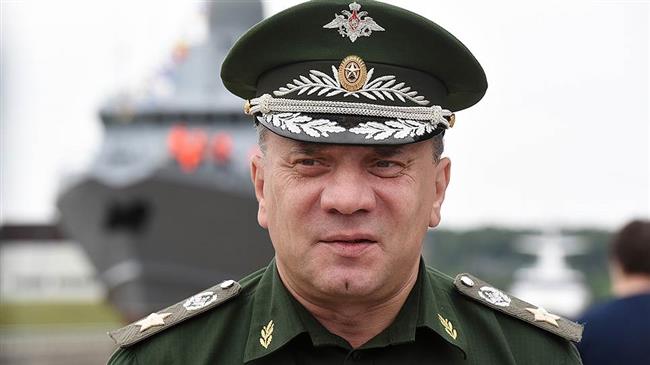Kosovo lawmakers set to vote on creation of independent army
Lawmakers in Kosovo were set on Friday to vote on a legislation which allows the formation of an independent army, with Serbia warning that it would escalate tensions and provoke a military intervention.
The parliament was expected to pass the legislation to transform the country’s own lightly-armed emergency response force, known as Kosovo Security Force (KSF), into a professional army.
The measure draws support from all political parties in ethnic Albanian-majority Kosovo. A minority of ethnic Serb lawmakers, however, have boycotted the sessions.
Kosovar President Hashim Thaci visited army barracks near the capital of Pristina on Thursday to assure "all the communities in Kosovo, especially the Serb one" that the future army "will continue to serve them without any ethnic distinction."
The prospect of a Kosovar army has prompted a stark warning from Serbia, which refuses to accept the former southern province as an independent state.
Muslim-majority Kosovo, which gained independence back in 2008, was a former Serbian province.
Serbian Prime Minister Ana Brnabić threatened Kosovo on Wednesday with a a military intervention, in the event of the creation of a standing army.
"I am hoping we would never have to use it [the army] but this is currently one of (the) options on the table as we do not want to watch this ... ethnic cleansing," she said.
Serbian President Aleksandar Vucic also accused Kosovo on Tuesday of trying to "drive the Serb people out of Kosovo" by pushing ahead with the plan.
Currently, 120,000 Serbs are living in Kosovo, mainly in the north near their contested border.

The small Balkan country is currently recognized by 117 countries as an independent state, including the United States and most members of the European Union. Five EU members, Serbia and Russia, however, refuse to recognize it as a sovereign nation.
The plan has also prompted reaction from NATO chief Jens Stoltenberg, who said the move “goes against the advice of many NATO allies and may have serious repercussions for Kosovo's future Euro-Atlantic integration.”
Kosovo's security is still guaranteed by 4,000 NATO troops, known as Kfor.
US, UK escalate tensions
The United States and United Kingdom, however, voiced support for the creation of an independent army.
US ambassador in Pristina, Philip Kosnett, took to Twitter on Thursday, describing the vote on army formation as "historic.”
He said that the parliamentary session and "ceremony should be occasions for solemn reflection" and "re-dedication to peace.”
Britain and Germany have also backed the move, but warned Kosovo that the future army of should be inclusive.
Their support for an independent Kosovar army comes in the face of escalating tensions between the West and Russia which is a staunch ally of Serbia with deep-rooted relationship.
Russia recently reacted to US and European "provocations" in Ukraine by seizing two warships in the Sea of Azov, which triggered new tensions in their strained relations.
VIDEO | Iran-Syria: For Resistance
Qassam Brigades claims killing 3 Israeli troops in northern Gaza
More alive than ever: Sayyed Hassan Nasrallah's legacy grows stronger in martyrdom
Occupation of Syria’s highest peak Mount Hermon part of ‘Greater Israel’ project
Iran: Syrian people will decide their future without foreign interference
IRGC says Iran’s power exceeds borders, warns enemies to adjust themselves
Dozens detained, several wounded in Israeli raids in West Bank
‘Ethnic cleansing’: Hamas blasts Israeli attacks on Gaza hospital amid intl. silence












 This makes it easy to access the Press TV website
This makes it easy to access the Press TV website